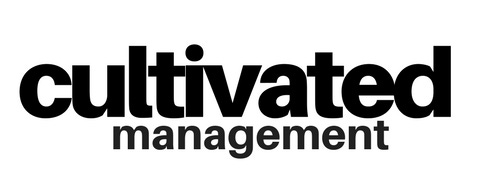The Manager - Edition 43 - Your name is on it - by Rob Lambert

Cultivated Management Newsletter
Hi,
Hope you've had a cracking weekend and are all set for the week ahead.
Life at Lambert Towers trundles on. This week I was remarkable pleased to hear that the company I spent so much of my time building the Engineering team at, NewVoiceMedia, was acquired this last week for $350million. Whoot.
It's great to finally close out the loop. I always knew we were doing amazing things and that we were building a team that got stuff done. We shipped plenty of features, responded rapidly to changing needs and scaled a highly proficient team across the UK and Poland.
When I left I kind of knew we'd done amazing things but hadn't been able to work out whether that was truly true or not. Sure, sales were coming in and software was going out, but was that it? Was that all we'd build? A feature factory?
And then it gets acquired. Which, at least to my simple mind, says we built something that someone else values enough to buy. It's closure. Feedback. A loop is closed. It just happens this feedback loop is 10 years.
And that's the thing with management - the feedback loops can be massive!
It's got your name on it.
Management is a lot about give and take. It's politics. Which in turn is little more than relationships. You give, and you take. You help someone in the business and in return, they help you. There are principles and guidelines, but very few rules.
You remember who has helped you and you hope others remember when you help them.
Only when I became a manager did I realise that relationships really matter.
I always say to my team and other managers, "start with a Utopian plan" and then let's see how close we get to it. By the time it's been discussed, reviewed, contributed to and catch-balled around by your management peers it won't be Utopian anymore. But it might be close. Or it might not.
It's all give and take. You compromise here, you take there. Sometimes you hang tight and hold out. Sometimes you expend energy somewhere else.
Not every fight is worth fighting. Save your energy.
But in doing so be aware that if you give too much then some (or many or all) initiatives may not be in alignment with your values - and they will have your name on them.
So, although you may give and take, you have to also realise your name is against work. So, disagree and communicate assertively. But if the business still decides to go ahead, commit to it. Or make other decisions.
Bite your tongue, make it work and support it publicly - hopefully after you've disagreed and committed to it, even though inside you're not behind it.
There's only so many of these you can support without your principles and values being bent too far out of shape.
Find a new company where your disagreements are fewer and far between - and people won't over-ride you so often. I did this.
Be a naysayer and openly be unsupportive of the new plans.
Don't do this.
This brings down the team - and that is one of the worst things you can do.
It's hard being a manager.
Not everything we do is what we believe in, but some fights are not worth fighting. But for the ones that are - fight them - disagree - stand by your reasons - and then commit either way.
In one role I found myself rolling out too many initiatives that had my name on it, but not my heart and soul behind them. This leads to burnout. Tread carefully.
The best bet is to find a business where the leadership team shares the same values as you do - then you'll find a high percentage of initiatives are in-line with your own view of the world. No need to disagree-and-commit very often. No need to naysay (never a need to do this).
But most importantly, when you work with peers and leaders who share similar values and principles as you do, you have a high chance of being proud that your names all over stuff.
Rob
Stuff To Click On :
1 - Leaders can be over-confident. I've seen this first hand where they plunge the organisation in to chaos chasing around dreams and hear-say for years, without taking a step back and looking at any evidence or data, or even simply listening to others.
2 - Consider culture when implementing agile is a somewhat insightful read, but also really infuriating. Culture is nothing more than behaviours. Agile is a set of behaviours. Seems that by either way you're addressing culture when you address behaviours.
3 - Love this short post from Seth Godin discussing the fact that the margin for improvement and rapid releasing is outside of the core work, in the incoming and outgoing pieces of the process. So true.
4 - Drawing helps us learn. Good news for me. I like to draw lots of uselessly awful pictures, usually of dogs on skateboards, in my notebooks, on whiteboards and on post-it notes.
Thanks for reading this week's edition of The Manager.
Thanks
Rob..


